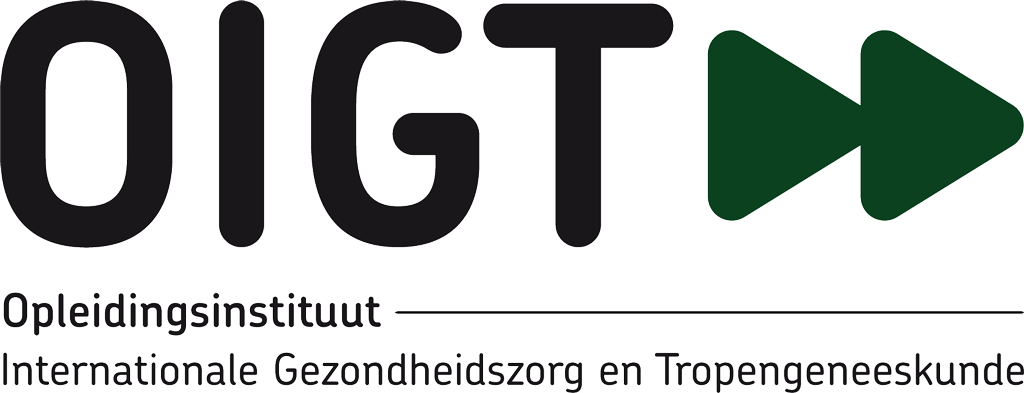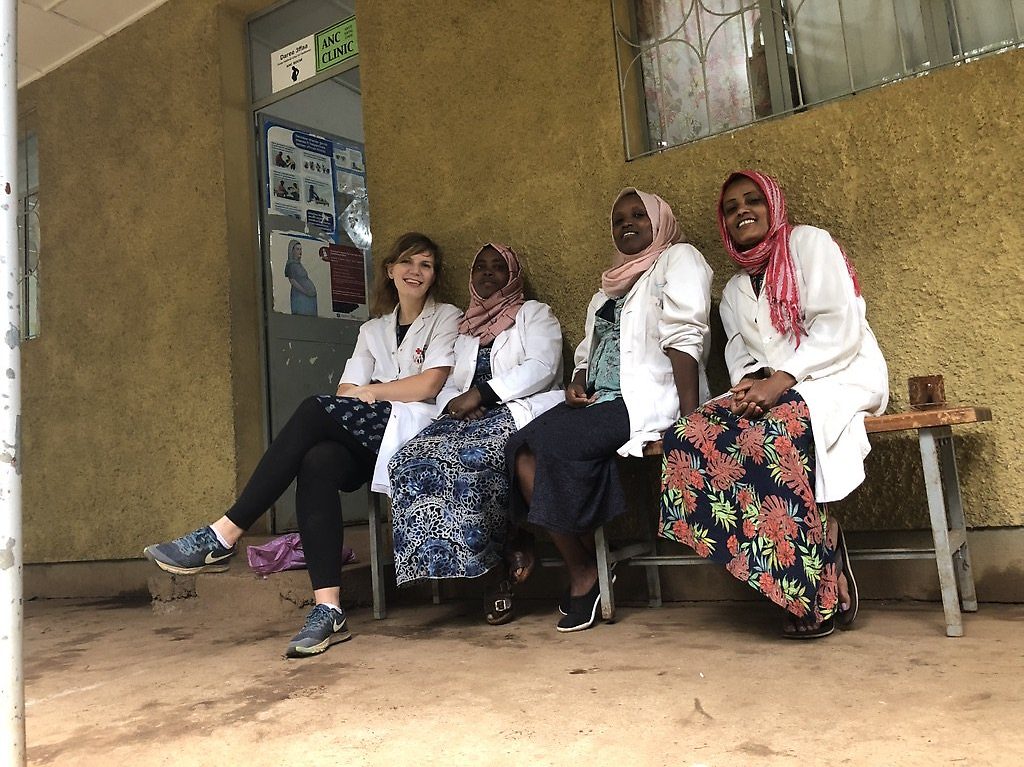
Direct naar
AIGT VACATURES »
Direct naar
OIGT VACATURES »
Korte uitleg over onderdeel Buitenland (Global Health Residency)
Het laatste onderdeel van de opleiding bestaat uit 6 maanden opleiding in een laag-inkomensland. Tijdens dit onderdeel zal de aios alle opgedane kennis en vaardigheden in de praktijk gaan toepassen binnen de context van het land. Het doel is dat de aios aan het eind van deze periode alle competenties zelfstandig of met beperkte supervisie kan uitvoeren. Er zijn opleidingsplaatsen in ziekenhuizen in Afrika en Azië. De plekken zijn verschillend van aard (ruraal, stedelijk; en via verschillende organisaties) maar er bestaat altijd een samenwerkingsverband tussen het opleidingsinstituut en het ziekenhuis of de organisatie.
Opleidingsinstellingen
Gedurende de 6 maanden buitenlandperiode zal de aios rouleren over verscheidene afdelingen in het ziekenhuis en meedraaien in de diensten. Naast klinische aspecten is er ook aandacht voor publieke gezondheidszorg en de projecten van de betreffende instelling. Voorafgaand het vertrek zullen de leerdoelen worden vastgesteld in een individueel opleidingsplan (IOP). De aios zal net als tijdens de onderdelen in Nederland beoordeeld worden door (lokale) opleiders. Ook zal de aios gedurende dit onderdeel van de opleiding een aantal public health opdrachten voltooien.
Plaatsingsprocedure
Een half jaar voor aanvang van het onderdeel Buitenland zullen de aios worden geplaatst in de beschikbare opleidingsinstellingen in het buitenland. Voorafgaand aan de plaatsing ontvangen de aios informatie over de verschillende ziekenhuizen, waarna de persoonlijke voorkeur kan worden opgegeven. Ook wordt er nog een informatieavond georganiseerd over het onderdeel Buitenland.
Blog van aios Heleen Koudijs, voorjaar 2019
A residents life in Gambo
Thirty-eight surgical procedures, two Cesarean sections, avast yet unknown number of Injera and roughly 20 words in both Orominya and Amharic up my sleeve. Food for statisticians, but not an accurate description of my life in Gambo.
After I finished the paperwork (well… I’m still awaiting my residency permit and am from yesterday officially overstaying my ‘legal welcome’ in Ethiopia), I started in the surgical department for the first part of my residency here. Dr Tilaneh, a young and keen Ethiopian surgeon is my daily supervisor and he has made the past few weeks great learning experience.I assist him with big elective surgical procedures,including surgery for goitre (where on my second day in Gambo I fainted – how embarrassing – and had the anaesthesiologist swiftly put 10ml of 50%glucose solution in my mouth, like a preterm baby, haha), but he is happy to assist me with open abdominal surgery or to teach me new surgical skills, including circumcision and treatment of hernias in the low resource setting. I still feel very much like an imposter every day, but there are also moments when I feel at ease and more in control.
The OPD on Monday is like going through a medicine textbook;on the spot diagnosis is more rule than exemption and patients – unfortunately for them, in a way easier for us in this setting lacking diagnostic options – present quite late. They pay a fee for medical care in the hospital depending on the problem, varying from roughly 15 euros for emergency care to 65 euros for an elective goitre admission. Some of the sickest patients unfortunately are also often some of the poorest (hence the late presentation, as they ‘do not want to come for nothing’), and every day I see patients who refuse treatment because of lacking funds. I struggle, but the hospital does not have a way around it. And where in my first weeks I was stumped and hoped refusing patients would return the next day with funds, I have now changed my tactics to at least providing an (perhaps second-best) out-patient (and therefore cheaper) solution, so that their health problems at least get some treatment.
During the week I’m the first on call for surgery and where everyone told me ‘nobody ever gets called at night for surgery’, I now know this is either hugely euphemistic or a result of my ‘approachability’. The first time when someone was banging my door at 2AM I was sure I was going to be assassinated or at least kidnapped, before I realised that it might be the
hospital. My ‘“Did you call Tilaneh too” was answered with laughter; of course they didn’t get the boss out of bed when I’m the first on call. I didn’t have clothes ready, couldn’t find my glasses or my torch… rookie mistake! The nurses however here are pretty brilliant, so the two trauma patients that I had to see had vital signs done, IV-cannulas and analgesics given to by the time I did arrive. Two weeks later and my pre-bed preparation is more in order :-).
Out of the hospital there is not much to do in Gambo except for hiking and hanging around with people. The hospital is located 18km from the tarmac road in the hills, and excluding about 10 hole-in-the-wall shops around the hospital, a cafe (lacking beer, sodas and frankly everything else last week) and the market in Lephis, there are no amenities around. Nature is gorgeous though, with a giant waterfall, jungle-like forest and hundreds of (apparent fake-) banana trees on the doorstep.
Gambo is also the ideal place to hide from government officials looking for medical doctors with expired work visa so I will get to explore some more in the coming time while waiting for my residency permit. Hopefully though with working electricity, as the dry season affects the power, and it leaves sometimes for several days in a row. Everyday however there is more wind, and clouds in a previously clear blue sky suggest that rain might be on it’s way... A change of season for Gambo and I’m keen to see what it will bring.


 Trainers abroad
Trainers abroad
 Opleidingsinstituut Internationale Gezondheidszorg en Tropengeneeskunde
Opleidingsinstituut Internationale Gezondheidszorg en Tropengeneeskunde